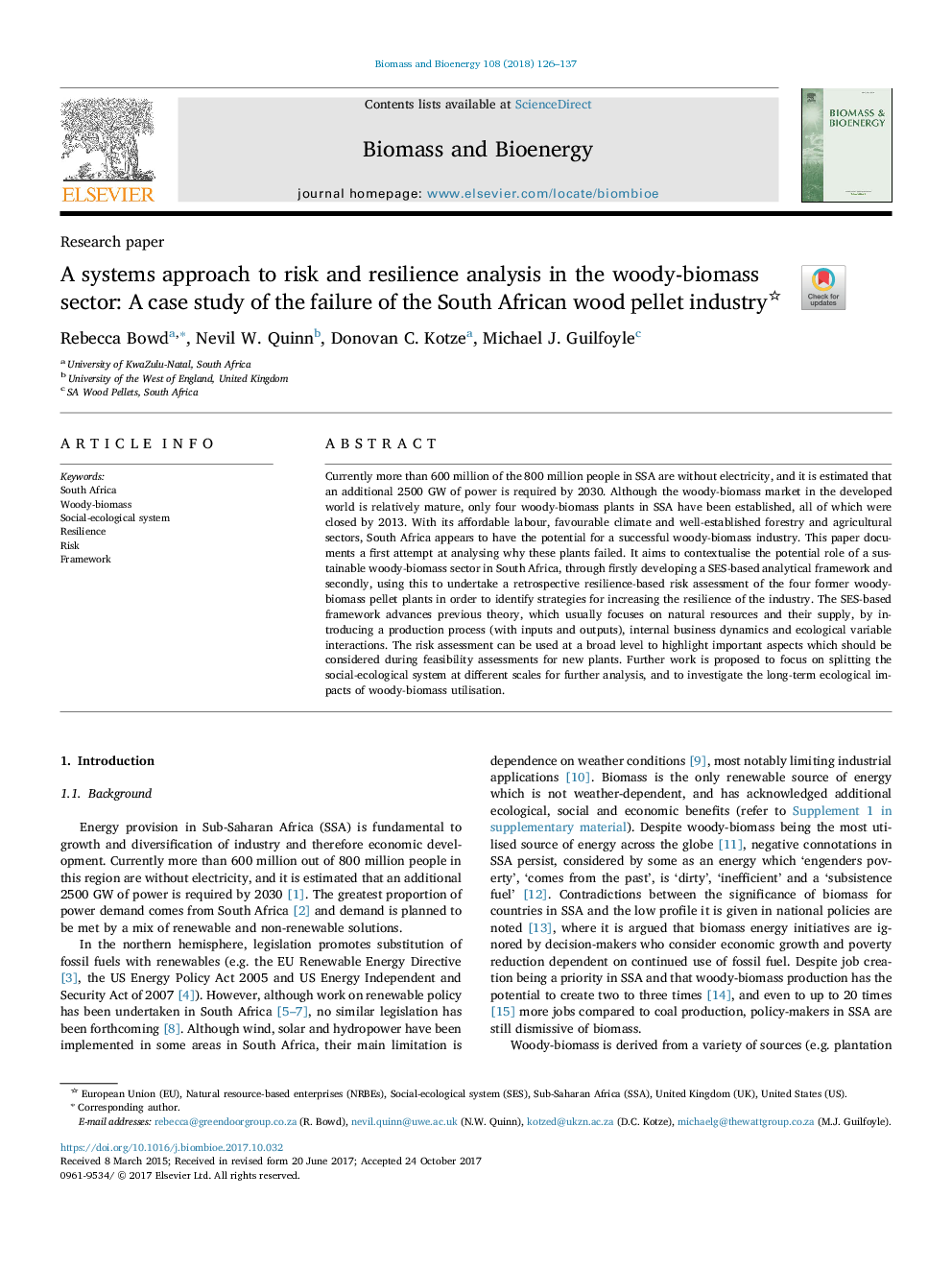ترجمه فارسی عنوان مقاله
یک رویکرد سیستم به تجزیه و تحلیل ریسک و انعطاف پذیری در بخش زیست توده چوب: مطالعه موردی از شکست صنایع پلت فرم چوب آفریقای جنوبی
عنوان انگلیسی
A systems approach to risk and resilience analysis in the woody-biomass sector: A case study of the failure of the South African wood pellet industry
| کد مقاله | سال انتشار | تعداد صفحات مقاله انگلیسی |
|---|---|---|
| 102293 | 2018 | 12 صفحه PDF |
منبع

Publisher : Elsevier - Science Direct (الزویر - ساینس دایرکت)
Journal : Biomass and Bioenergy, Volume 108, January 2018, Pages 126-137
ترجمه کلمات کلیدی
آفریقای جنوبی، زیست توده زیستی، سیستم اجتماعی-زیست محیطی، انعطاف پذیری، خطر، چارچوب
کلمات کلیدی انگلیسی
South Africa; Woody-biomass; Social-ecological system; Resilience; Risk; Framework;

